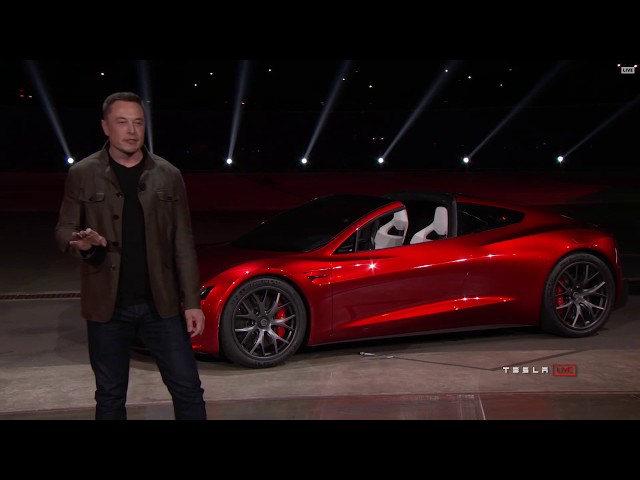Physical Address
304 North Cardinal St.
Dorchester Center, MA 02124
Physical Address
304 North Cardinal St.
Dorchester Center, MA 02124

Elon Musk is a name synonymous with groundbreaking innovation and bold visions for the future. As a serial entrepreneur, inventor, and technologist, Musk has left an indelible mark on industries ranging from aerospace and automotive to artificial intelligence and renewable energy. His biography is a compelling journey of ambition, perseverance, and transformative impact on the modern world.
Elon Reeve Musk was born on June 28, 1971, in Pretoria, South Africa. He grew up in a family that valued learning and technology. His father, Errol Musk, was an electromechanical engineer, while his mother, Maye Musk, worked as a dietitian and model.
By the age of 10, Musk had developed an interest in computing. He taught himself to code and sold his first software, a game called Blastar, at age 12.
After attending Pretoria Boys High School, Musk left South Africa to pursue higher education in North America. He attended Queen’s University in Ontario, Canada, before transferring to the University of Pennsylvania, where he earned degrees in physics and economics.
Musk’s entrepreneurial journey began in earnest in 1995, when he dropped out of a PhD program at Stanford University to launch Zip2, a company providing online city guides for newspapers. In 1999, Compaq acquired Zip2 for $307 million, earning Musk $22 million for his shares.
Shortly thereafter, he founded X.com, an online financial services company. X.com eventually became PayPal after a merger and rebranding. In 2002, PayPal was acquired by eBay for $1.5 billion, giving Musk a $165 million windfall.
In 2002, Musk founded Space Exploration Technologies Corp. (SpaceX) with the goal of making space travel affordable and eventually colonizing Mars. Despite early failures with its Falcon 1 rockets, SpaceX became the first private company to send a spacecraft (Dragon) to the International Space Station (ISS) in 2012.
SpaceX has since developed Falcon 9, Falcon Heavy, and is currently working on the Starship program—designed for interplanetary travel. In 2020, SpaceX successfully launched NASA astronauts from U.S. soil for the first time since 2011.

Musk joined Tesla Motors (founded in 2003) as chairman and later became its CEO. Under his leadership, Tesla has revolutionized the electric vehicle (EV) market with models like the Model S, Model 3, Model X, and Model Y.
Tesla also introduced Autopilot, an advanced driver-assistance system, and invested heavily in battery technology, solar energy, and energy storage through the Gigafactory project.
In 2006, Musk co-founded SolarCity, a solar energy services company later acquired by Tesla. The acquisition strengthened Tesla’s goal of providing sustainable energy solutions, integrating solar panels with Powerwall and Powerpack battery storage systems.
His long-term vision includes energy independence, clean power, and a transition away from fossil fuels.
Neuralink, founded in 2016, aims to develop implantable brain–machine interfaces (BMIs). The company’s long-term mission is to help treat neurological disorders and ultimately create a symbiosis between humans and artificial intelligence.
Neuralink has conducted experiments on animals and is working toward human trials. While the technology is still in its infancy, it represents a radical step in human–AI integration.
Launched in 2016, The Boring Company seeks to solve urban traffic congestion through underground tunnels. The company developed a test tunnel in Hawthorne, California, and launched its first commercial project in Las Vegas: the LVCC Loop.
Musk’s vision includes a high-speed Hyperloop transportation system, although its implementation remains theoretical.
In October 2022, Musk completed the $44 billion acquisition of Twitter, later rebranding it as X Corp. He aimed to transform the platform into a space for “free speech” and a super app integrating payments, messaging, and commerce.
His leadership at X has been controversial, marked by mass layoffs, policy changes, and a shift in platform direction. Nonetheless, it reflects Musk’s belief in unfiltered communication and decentralized platforms.
Musk was one of the co-founders of OpenAI in 2015. He has since distanced himself from the organization but remains a vocal advocate for safe AI development. He often emphasizes the existential risk posed by unregulated AI and calls for government oversight and ethical frameworks.
Musk’s management style is characterized by intensity, micromanagement, and high expectations. He often works long hours and expects the same from his teams. While admired for his visionary mindset, he has also faced criticism for:
Musk’s Twitter presence has been both influential and contentious, occasionally sparking legal and financial scrutiny.
Musk’s long-term vision encompasses:
These goals, while ambitious, reflect his belief that technology can solve humanity’s most pressing problems.
Elon Musk has become one of the most influential figures in the 21st century. His work has:
Musk’s legacy will be shaped by whether his companies can fulfill their long-term promises, particularly in sustainability, space exploration, and human–AI coexistence.
Elon Musk’s biography is far from conventional. From a curious child in South Africa to the world’s richest man (as of 2023), his journey is a study in perseverance, risk-taking, and relentless pursuit of innovation. Whether one views him as a genius, a disruptor, or a controversial figure, there is no doubt that Musk has reshaped the landscape of modern technology.

Elon Musk is a billionaire entrepreneur known for founding SpaceX, co-founding Tesla, and promoting innovation in space travel, electric vehicles, and AI.
Musk is involved in SpaceX, Tesla, Neuralink, The Boring Company, and X Corp (formerly Twitter).
His net worth fluctuates but often ranks him among the top three richest individuals globally.
While not a scientist by training, Musk has a background in physics and frequently engages in scientific and engineering problem-solving.